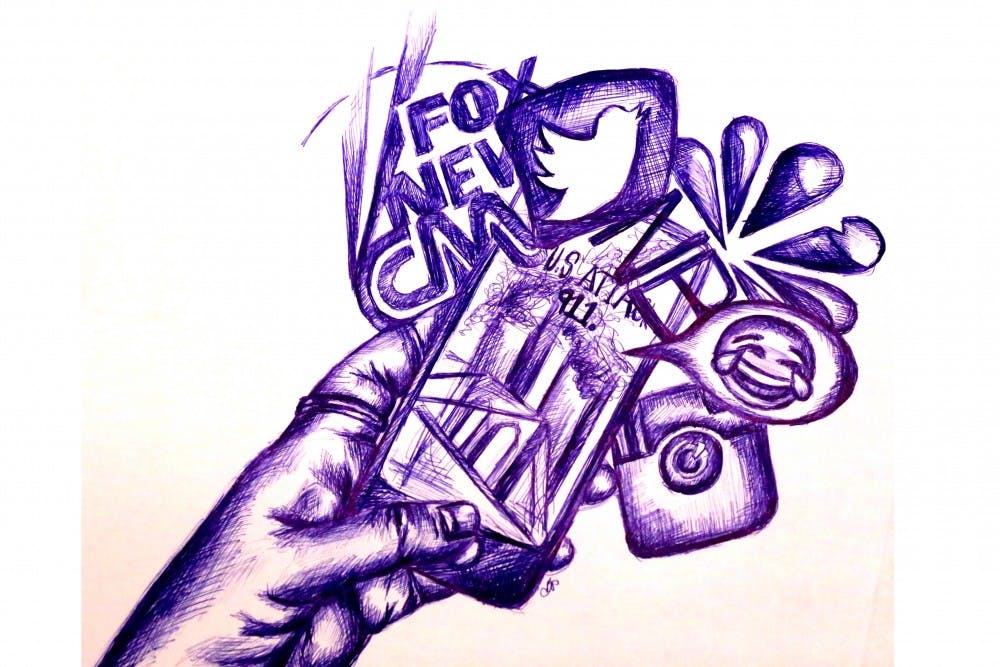Back in high school, students in my English class would compete with each other during our class discussion to see who could make the most offensive and insensitive jokes. My jaw never ceased to hit the floor — these jokes’ topics ranged from the deaths of 9/11 to coat hanger abortions to citizens of impoverished countries. By senior year, I am sad to say that I too had begun to find these jokes funny, never fully reflecting on their subject matter.
These jokes made me reflect on the manner in which we, as a generation, react to events involving violence or death. We overlook the importance of these things because they are so prevalent and because we are growing more and more insensitive.
Yes, we live in a country that emphasizes free speech, and to limit what people can say would be censorship, but is it not counterproductive to promote insensitivity surrounding unresolved matters? Let me explain.
A 30-year study was recently released featuring data collected from over 14,000 college students. The study revealed that empathy in the younger generation, since 2000, has decreased by 40 percent when compared to the youth 20 to 30 years ago. This is a drastic value that has been disputed, but regardless of whether it is accurate, it represents a shift in the youth's attitude. Before concluding the consequences of this, we must first identify the causes.
Perhaps we have become desensitized to social matters in this country due to the coverage they receive in the media, or perhaps this decrease in empathy reflects the narcissism we see spreading among youth.
The prevalence of violence and atrocities has not changed — it has actually decreased. We must consider that our grandparents and great-grandparents experienced some of the toughest times in this country with the Great Depression, World War I and World War II. Violence, poverty and natural disasters were as commonplace in these times as they are now, but people during these times worked to improve their situation, instead of belittling it and disregarding its importance.
Our attitude has changed largely due to the coverage of these events. Starting in 1955 with the Vietnam War, journalists began to cover the atrocities of war and release them to the public. At first, the public was outraged, which can be seen by in the "hippie movement." Over time, this coverage became more and more prevalent, so our attitudes changed, and we began to care less.
We all have access to the events occurring worldwide; most of us can hold this information in the palms of our hands, but belittling these topics accomplishes nothing. Social reform will halt if we continue to disregard these important events. Similar to the U.S. in World War I, we will deny the existence of problems that don’t affect us directly. These matters will escalate, but no one will present any solutions. Instead, we will trivialize topics such as war, terrorism, poverty and death until nearly no one cares about them.
Many would argue that the opposite is true, however, claiming that the younger generation is becoming too sensitive. We must consider this matter over a large span of time, though. Would it ever be acceptable for someone to poke fun at the war or terrorism in the U.S. 30 years ago or even 15 years ago? This movement of insensitivity has grown.
There is a positive to this movement that must be addressed. Though the information is being misused, it shows that these people are informed and are knowledgeable of these events. It is our overall lack of concern for them that constitutes the problem. Not only do jokes represent this mentality, but also the way in which we overlook these matters simply because we are not directly affected by them.
There has been a shift in attitude. We represent a generation of misplaced positivity, a mindset that represents counterproductive intentions. If this behavior continues to escalate, we may regress as a society.
Related Links:
Political correctness: A product of free speech
ASU named one of seven best free speech colleges
Reach the columnist at ghirneis@asu.edu or follow @ghirneise2 on Twitter.
Editor’s note: The opinions presented in this column are the author’s and do not imply any endorsement from The State Press or its editors.
Want to join the conversation? Send an email to opiniondesk.statepress@gmail.com. Keep letters under 300 words and be sure to include your university affiliation. Anonymity will not be granted.
Like The State Press on Facebook and follow @statepress on Twitter.




